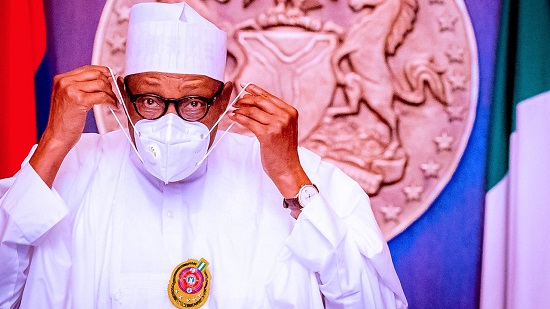This post has already been read 1015 times!
A civil society organisation (CSO), Centre Centre for Social Justice (CSJ), has declared that despite the daunting economic challenges confronting the nation, President Muhammadu Buhari’s 61st Independence Day speech was bereft of measures to address them.
In a statement issued at the weekend, the organisation observed that the economic situation remains one of the biggest challenges facing the nation, adding that the economy is ravaged by double-digit inflation, worsening poverty, incredible unemployment figures especially among the youth, a fast depreciated and depreciating currency, a huge trade deficit, and debt service that gulps all retained revenue, among others.
The statement signed by CSJ’s Lead Director, Eze Onyekpere, and Programme Director, Victor Okeke, lamented that all these are compounded by insecurity and terrorism.
The economy, it stated, suffered stagnation, growing at less than 1 per cent cumulatively during the past six years, which is far below the population growth of 2.6 per cent.
The organisation stated that as the president rightly acknowledged in his speech, “the past eighteen months have been some of the most difficult periods in the history of Nigeria. Since the civil war, I doubt whether we have seen a period of more heightened challenges than what we have witnessed in this period”.
CSJ admitted that COVID-19 has battered economies everywhere, but noted that Nigeria’s economic malaise predates the pandemic, as the country had slumped into a recession immediately the president took office.
Pointing out that the pandemic merely added to the economic woes, CSJ noted that it expected that policy measures to control the economic rot would have been announced by the president during his 61st Independence Day speech.
It said: “So, it is regrettable that there were no policy statements to stop the free fall of the naira which has lost 13% of its value since July 28, 2021 after the Central Bank of Nigeria (CBN) stopped sales of the foreign currencies to Bureau de Change.
“Today, the naira exchanges for N570 to $1 on the dominant market where majority of Nigerians source their funds while it is largely unchanged at the average rate of N411 to dollar at the controlled CBN window which is available to only a few priviledged Nigerians.
“CSJ calls on President Buhari to urgently come up with policies and reforms to reduce insecurity so that businesses and farming can start to thrive; reduce inflation, protect the poor and vulnerable and support economic recovery.
“Accomplishing these will require a big push in exchange-rate management, monetary policy, trade policy, fiscal policy and social protection. There should be increasing the transparency and predictability of exchange rate management policies to reduce distortions in allocations in the private and public sector; and to ensure that agents can access foreign exchange in a timely and orderly manner, at an agreed rate.”
It also called for a clearly defined monetary policy priorities and objectives, with price stability as the primary goal, stressing that this should be harmonised with fiscal, trade, industrial and labour policies.
The organisation urged the federal government to establish mechanisms to monitor and report its stock of CBN overdrafts to control the growth of money supply, even as it advocated a full elimination of petrol subsidy while refocusing subsidy (if need be) on production instead of consumption.
It also observed that reducing the cost of governance is also imperative, while the federal government should design sequenced reforms to mobilise domestic non-oil revenue in a way that does not affect economic recovery, including increasing excise taxes on harmful consumption goods, rationalizing tax expenditures, removing loopholes in tax laws, and improving tax compliance by strengthening revenue administration.
“Finally, FGN should open up the investment and civic space and lifting the ban on Twitter would send the right message rather than doubling down on the infraction of the fundamental rights of Nigerians to freely express themselves and have access to the means of exercising the right,” CSJ submitted.



